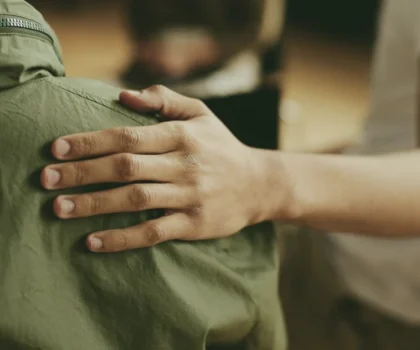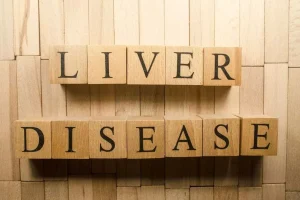Mental illness-related stigma in healthcare PMC
Although we no longer imprison, burn or kill the mentally ill as in the Middle Ages or in Nazi Germany, our social standards and attitudes are nonetheless unworthy of modern welfare states. Structural discrimination how to store pee of the mentally ill is still pervasive, whether in legislation or in rehabilitation efforts. When capitalism took hold, we started to value individual autonomy and productivity for everybody.
Lack of Understanding
Providers may also feel stigmatized by colleagues or the public because of their role in mental healthcare. As individuals needing treatment can find themselves in vulnerable conditions, stigma can directly impact the care they are able to ask for and insist on receiving. There is no country, society or culture where people with mental illness have the same societal value as people without a mental illness. In a survey that included respondents from 27 countries, nearly 50% of persons with schizophrenia reported discrimination in their personal relationships.
Read other articles by their category
- Furthermore, stigma across cultures impacts psychiatric care in various ways and can create significant barriers to effective treatment.
- Talking circles are one way to listen and speak about societal injustices like mental illness stigma.
- The portrayals in the media tend to present situations where everyone in a character’s life knows about their mental illness.
- For the most part, it is the unspectacular day‐to‐day work and contacts that help decrease stigma and discrimination against the mentally ill 10.
- We use only trustworthy sources, including peer-reviewed studies, board-certified medical experts, patients with lived experience, and information from top institutions.
- Family stigma is a special case that applies to parents, siblings, spouses, children and other relatives.
The Lancet report found that people affected by mental illness stigma experienced discrimination in various areas of their lives, such as social settings, school, work, and relationships. As a result, feelings of loneliness, shame, and isolation increased, worsening mental health conditions and increasing reluctance to seek help. The tendency to avoid treatment is most common among minorities, young people, those living with their parents, military personnel, and health professionals. Several sociodemographic and attitudinal factors influenced the public’s endorsement of forced treatments for children with ADHD and depression (Pescosolido et al. 2007a). The public was less supportive of clinical or hospital-based treatments for fourteen-year olds compared to eight-year-olds with mental disorders.
How the Stigma of Mental Illness Has Evolved Over Time
Equal Employment Opportunity Commission (EEOC) encourages workers who suspect workplace discrimination to file a discrimination charge with the EEOC or with their state or local Fair Employment Practice Agency. There are several actions individuals can take to fight stigma in their lives and their communities. They can educate themselves what is steve harwell dying from? by reading about mental health, stereotypes, and myths. They can research the factors that contribute to stigma such as culture, stress, and poverty. They can explore any self-stigma and if so practice self-compassion and empowerment. And they can help others by volunteering or advocating on behalf of those with mental health conditions.
From widespread information to even the simple words we choose to use can make a big difference. It’s only been over the last few decades that we’ve gained a better understanding of mental health, better treatment options and more people getting well, making it easier to talk about. As individuals who consume copious amounts of mass media and engage with social media, the best thing we can do is stop using words like “crazy” and “deranged” in a derogatory or flippant fashion. We also need to remember that it’s best to avoid making a psychiatric diagnosis outside of a clinical setting.
Understanding (and Getting Past) the Mental Health Stigma
Use your words and your actions to promote inclusivity and acceptance of people with mental health conditions. Creating support groups and networks where people can connect with others who have shared experiences with mental health conditions facilitates meaningful conversation and provides mutual support and encouragement. The pressure of mental health stigma can come from family, friends, coworkers, and society on a broader level. It can prevent people living with mental illness from getting help, fitting into society, and leading happy and comfortable lives. Individuals or groups can apply stigma to those who live a certain way, have certain cultural beliefs or make lifestyle choices, or to people living with health conditions, such as mental illnesses.
Discrimination may be obvious and direct, such as someone making a negative remark about your mental illness or your treatment. Or it may be unintentional or subtle, such as someone avoiding you because the person assumes you could be unstable, violent or dangerous due to your mental illness. Through education and understanding, we can eliminate the stigma around mental illness, and there is support available to people who are currently experiencing stigma. Public education to increase knowledge around mental illness is paramount, since the majority of stigma comes from a lack of understanding and misplaced fear. Mental health stigma refers to societal disapproval, or when society places shame on people who live with a mental illness or seek help for emotional distress, such as anxiety, depression, bipolar disorder, or PTSD.
Pervasive in all aspects of psychiatric care, stigma leads to delayed treatment, increased morbidity, and diminished quality of life for those with poor mental health. Hence, better understanding the impact of stigma across different cultural contexts is critically essential, aiming to inform culturally nuanced strategies to minimize its consequences and contribute to a more equitable and effective psychiatric care system. The review covers a range of countries and cultural settings, emphasizing the importance of understanding cultural nuances to combat stigma and promote mental health awareness globally.
“The life expectancy of a patient with a serious, chronic mental health issue can be 10 to 20 years shorter,” he points out. Only a specialist can make a diagnosis of OCD, depression, bipolar disorder, schizophrenia, and other mental health conditions. When we give someone the label of being mentally ill without clinical evidence, we hurt people who live with mental illness on a daily basis. Media depictions of people with mental illness also play a part in perpetuating stigma. Mental health conditions are often depicted negatively, and media reports often attempt to link criminal activity and violence to mental health problems. Prevalence estimates suggest that stigma is common, although it varies depending on the population, condition, and individual factors.
In Western societies, stigma often stems from misconceptions about mental illness, including the belief that individuals with mental health disorders are dangerous or unpredictable. While mental illness is recognized more as a health issue, stigma still exists, often resulting in social exclusion and discrimination [12]. The stigma surrounding psychiatry, as research suggests, manifests differently across cultures due to various factors [7]. This stigma operates at various levels, including individuals, families, healthcare providers, and society, and cultural norms, religious beliefs, and social attitudes influence its manifestations and implications.
To effectively address and reduce stigma in mental healthcare settings, developing culturally sensitive interventions and promoting understanding and acceptance of mental health issues is crucial. By doing so, we can work towards improving access to mental health care and promoting the well-being of individuals and communities across the globe. A 2013 review of studies on the public stigma of mental illness showed that stigma is still widespread, even as the public has become more aware of the nature of different mental health conditions.
There’s been a real increase in the number of people who want to become psychiatrists and clinical psychologists. And I have a sense that, especially among young people, it’s expected to talk openly about things that people used to be ashamed of. Celebrities and athletes have been coming forward, like Lady Gaga, Bruce Springsteen, Jane Fonda, and Metta Sandiford-Artest.
In all of these articles, stigmatizing actions were assessed through questions about preferences for social distance from individuals with mental illness. Social distance is a measure of exclusion of individuals in a variety of social situations (e.g., unwilling to work closely with someone, to have someone as a neighbor, to have someone marry into your family) because of their mental illness (Boyd et al. 2010). Social distance was the primary alcohol gallbladder mechanism for researching and measuring stigmatizing actions in these articles. The National Alliance on Mental Health (NAMI) defines these feelings as “stigma,” which it says can profoundly affect individuals and reduce their likelihood of reaching out for support. Here, we provide examples of various mental health stigmas and their consequences, while sharing expert solutions for reducing and eventually eliminating the problem.
- Published in Sober Living
butalbital-acetaminophen-caffeine oral: Uses, Side Effects, Interactions, Pictures, Warnings & Dosing
However, caffeine can also cause physical dependence when it is used for a long time. This may lead to withdrawal (rebound) headaches when you stop taking it. This medicine can affect the results of certain medical tests. Tell any doctor who treats you that you are using acetaminophen and butalbital. In rare cases, acetaminophen may cause a severe skin reaction that can be fatal, even if you took acetaminophen in the past and had no reaction. Ask a doctor or pharmacist before using other medicines for pain, fever, swelling, or cold/flu symptoms.
More on Drugs & Medications
- Do not use in larger or smaller amounts or for longer than recommended.
- You should not use Fioricet if you are allergic to it, if you have porphyria, or if you have recently used alcohol, sedatives, tranquilizers, or other opioids.
- If you are using the liquid form of this medication, carefully measure the dose using a special measuring device/spoon.
- Do not use Fioricet if you have used an MAO inhibitor in the past 14 days.
Tell your doctor if you have ever had alcoholic liver disease (cirrhosis) or if you drink more than 3 alcoholic beverages per day. You may not be able to take medicine that contains acetaminophen. RxList does not provide medical advice, diagnosis or treatment. You should bring this list with you each time you visit a doctor or if you are admitted to a hospital.
Butalbital-Acetaminophen-Caffeine for Headache: What You Need to Know
The combination of acetaminophen, butalbital, and caffeine comes as a capsule and tablet to take by mouth. Follow the directions on your prescription label carefully, and ask your doctor or pharmacist to explain any part you do not understand. Take acetaminophen, butalbital, and caffeine exactly as directed. Do not take more than six tablets or capsules in 1 day. If you think that you need more to relieve your symptoms, call your doctor. Using this medicine with any of the following medicines may cause an increased risk of certain side effects, but using both drugs may be the best treatment for you.
Is It Normal to Have Headaches in Second Trimester Pregnancy?
Before you have any medical tests, tell the medical doctor in charge that you or your child are taking this medicine. The results of some tests may be affected by this medicine. If you are on a dosing schedule, skip any missed dose. Prescriptions may be refilled only a limited number of times; ask your pharmacist if you have any questions. Caffeine has pain relieving properties and may boost the action of other pain relievers by mechanisms that are not well understood.
You may have withdrawal symptoms if you stop using the medicine suddenly after long-term use. Keep the medication where others cannot get to it. This medication is sometimes prescribed for other uses; ask your doctor or pharmacist for more information. Your sleep problems should improve within 7 to 10 days after you start taking butabarbital.
Store at room temperature away from light and moisture. This drug passes into breast milk and could have undesirable effects on a nursing infant. can microdosing mushrooms reduce anxiety depression and stress Breastfeeding is not recommended while using this drug. If you experience signs of abuse, we recommend that you seek help immediately.
Tension headaches can be due to stress or tension in your neck or other causes. They’re more common in women, and they often start in your 20s and peak in your 40s. They can happen once in a while or many times over several months. Do not flush medications down the toilet or pour them into a drain unless instructed to do so. Properly discard this product when it is expired or no longer needed.
Use Butalbital Compound (Oral) exactly as directed on the label, or as prescribed by your doctor. Do not use in larger or smaller amounts or for longer than recommended. Butalbital/Acetaminophen/Caffeine is a prescription medication used to treat Tension Headaches. Keep all appointments with your doctor and the laboratory.
As a Schedule III drug, butalbital has a high potential for addiction and physical dependence on the drug. Tolerance to this medication can occur in a relatively short period, leading to higher dosages and more potential for misuse. Tension headaches can be incredibly disruptive, making it difficult to focus or enjoy your day. While butalbital offers potential relief https://sober-home.org/2c-b-guide-2c-b-dosage-experience-benefits-effects/ by relaxing muscles, easing anxiety, and promoting calmness, it’s essential to be aware of its risks. Note that this list is not all-inclusive and includes only common medications that may interact with acetaminophen/butalbital/caffeine. You should refer to the prescribing information for acetaminophen/butalbital/caffeine for a complete list of interactions.
Talk to your care team about the use of this medication in children. While this medication may be prescribed for children as young as 12 years old for selected conditions, precautions do apply. You https://sober-house.org/what-are-whippet-drugs-risks-effects-and-addiction/ may get drowsy or dizzy when you first start taking the medication or change doses. Do not drive, use machinery, or do anything that may be dangerous until you know how the medication affects you.
- Published in Sober Living
The 4 F’s of Lasting Love: Simplifying Relationship Success

These groups offer a judgment-free zone where you can share your experiences and learn from others. The camaraderie and understanding within these groups can lead to lasting friendships grounded in mutual support and shared experiences. Making amends requires actions that demonstrate your commitment to change and to rectify past mistakes.
Building Trust in Recovery
- Often, we tend to focus on putting all of our energy into romantic relationships.
- You don’t have to say you’re sober on the first date – it may come up naturally in conversation as you’re getting to know the other person.
- Unhealthy relationships can have a negative impact on addiction recovery by perpetuating negative emotions, enabling destructive habits, and potentially leading to relapse.
- Genuine emotional connections can be rebuilt, enabling relationships to flourish.
- Even though recovery is a process full of complexities, it’s possible to overcome addiction with professional guidance and personal commitment.
And perhaps your boyfriend or girlfriend is someone who appreciates words of affirmation. With both people on the same page, you can figure out a way to best support your partner and know what to expect when you want to express https://ecosoberhouse.com/ your love. When seeking potential partners, you should also consider their lifestyle as well. If they are someone who drinks casually at dinner or enjoys hanging around bars, will this pose a threat to your sobriety?
Frequently Asked Questions About Rebuilding Relationships After Addiction
If you’re in recovery for SUD, here’s how you can try to make amends with loved ones whose trust was bruised during addiction. Whether you’ve been in recovery previously or this is your first attempt, why should they believe you now? How many times have you told them romantic relationships in recovery that this time things will be different? The more often this happens, the harder it is for the important people in your life to trust that this time really will be different. People do activities and programs with others who have similar goals and experiences.
How Mindful Living’s Peer Support Programme Echoes the Bravery of Oskar Schindler
They attend meetings, share with sponsors, work their steps, and go through significant therapy. They create deep and meaningful relationships with others, but not with their partner. Whether it’s completing a week of sobriety, attending support group meetings consistently, or making positive lifestyle changes, each step forward deserves recognition. By acknowledging these small victories, individuals can gain a sense of accomplishment and motivation to continue their progress. Chronic misuse of alcohol or drugs often results in crossing boundaries within relationships, which can mean unhealthy dynamics such as codependence and enabling behaviors.
Listen and Validate Feelings

A strong foundation of self-care is critical to supporting healthier relationships under normal circumstances, never mind when there is complexity such as addiction and recovery thrown into the mix. Addiction does not occur in isolation; it affects every aspect of an individual’s life, and that includes their key relationships (and peripheral ones). The strain that addiction places on connections with family, friends, and partners can be immense, often leading to feelings of betrayal, hurt, and frustration on all sides.

- As much as you need to express your remorse and commitment to change, it’s equally important to listen to how your addiction created toxic relationships.
- Practice active listening, express your thoughts and feelings honestly, and show genuine interest in the lives of others.
- But there are also support groups that have always existed purely online.
- Some people get solace from religion, some from nature, or creative outlets.

Therapists Recommend Building Rapport to Engage Adolescent Males in Therapy
- Published in Sober Living
